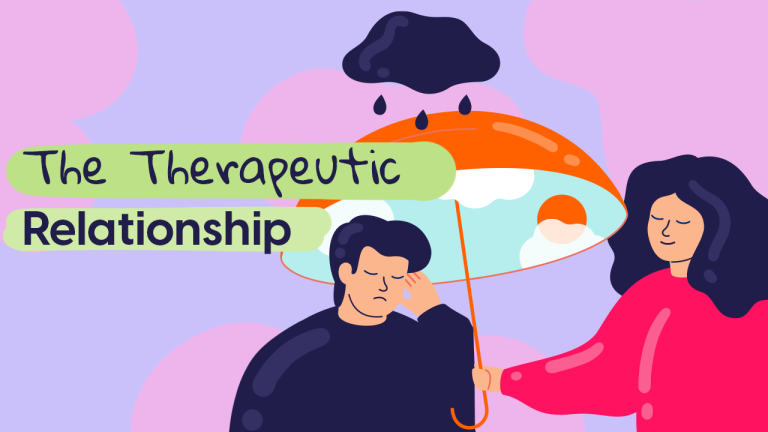A Holistic Approach to Mental Health
Mental health treatment is most effective when it addresses the whole person—mind, body, and behavior. While both therapists and psychiatrists bring valuable expertise to this process, collaboration between the two creates a more comprehensive and effective approach to care. Instead of operating in silos, mental health professionals working together ensure that clients receive the most well-rounded support possible.
This collaboration is especially critical in cases where individuals are managing both mental health conditions and co-occurring issues like addiction, trauma, or chronic stress. By combining therapeutic insight with medical expertise, therapists and psychiatrists can provide care that truly meets the individual’s needs.
The Role of Therapists in Mental Health
Therapists focus primarily on emotional, behavioral, and cognitive support. Through talk therapy, clients learn to identify thought patterns, process trauma, and develop healthier coping mechanisms. Therapists also help clients build communication skills, strengthen relationships, and explore the underlying issues that may contribute to mental health struggles.
The therapeutic relationship is deeply personal, often providing a safe space for individuals to be vulnerable and explore the emotions that shape their daily lives.
The Role of Psychiatrists in Mental Health
Psychiatrists, as medical doctors, bring an additional layer of expertise. They are able to diagnose mental health conditions, evaluate biological factors, and prescribe or manage medications that support recovery. For many individuals, medication plays an important role in creating stability and making therapy more effective.
In addition, psychiatrists often conduct comprehensive evaluations that consider genetics, neurochemistry, and overall physical health—factors that can heavily influence mental well-being.
The Benefits of Collaboration
When therapists and psychiatrists work together, the client benefits from a seamless treatment experience. Key benefits include:
More Accurate Diagnoses
Therapists observe behavioral patterns and emotional responses over time, while psychiatrists evaluate biological and medical factors. Together, they can develop a clearer, more accurate picture of a client’s needs.
Complementary Treatment Plans
Therapists help clients address underlying thought and behavior patterns, while psychiatrists ensure that medical support aligns with therapeutic goals. This balance ensures no part of the healing process is overlooked.
Greater Client Engagement
Clients are more likely to remain engaged in their treatment when they feel supported on multiple levels. The combination of therapy and psychiatric care helps individuals feel that their struggles are being fully understood and addressed.
Reduced Risk of Relapse
For individuals managing co-occurring disorders, collaboration reduces the risk of relapse by treating both the psychological and biological components of their condition.
How Collaboration Works in Practice
Collaboration can take many forms. Some practices have psychiatrists and therapists under one roof, sharing notes and coordinating treatment directly. In other cases, professionals may work in separate practices but maintain open communication through regular updates and shared treatment plans.
What matters most is that both professionals are aligned on goals, strategies, and progress. This ensures clients receive consistent, supportive care across all aspects of their treatment.
Overcoming Barriers to Collaboration
Despite its benefits, collaboration between therapists and psychiatrists can face challenges, such as limited communication, differences in approach, or logistical issues. To overcome these barriers, practices must prioritize:
- Clear communication channels to share progress and challenges.
- Mutual respect for each professional’s expertise.
- Client-centered focus that prioritizes outcomes over professional silos.
- Technology integration such as shared records that streamline collaboration.
By addressing these barriers, mental health providers can create stronger partnerships that improve outcomes.
Why Marketing This Collaboration Matters
For practices and providers, it’s important to communicate the value of collaboration to prospective clients. Many individuals seeking help may not understand the differences between therapists and psychiatrists, let alone how the two can work together.
A specialized psychiatrist marketing agency can help providers highlight their collaborative approach. Effective marketing strategies can showcase the benefits of integrated care, educate clients about available services, and build trust by emphasizing a whole-person focus on mental health.
By positioning collaboration as a strength, practices can stand out while also reducing stigma and making care feel more approachable.
A Path Toward Comprehensive Healing
Mental health recovery is rarely achieved through one method alone. True healing often requires a blend of therapeutic support, medical expertise, and ongoing collaboration between professionals. When therapists and psychiatrists work together, clients benefit from a more balanced and effective approach to care.
Collaboration doesn’t just improve outcomes—it creates an environment where individuals feel fully supported, understood, and equipped to thrive. By bridging the gap between therapy and psychiatry, mental health providers can deliver the kind of holistic treatment that makes long-term recovery possible.

